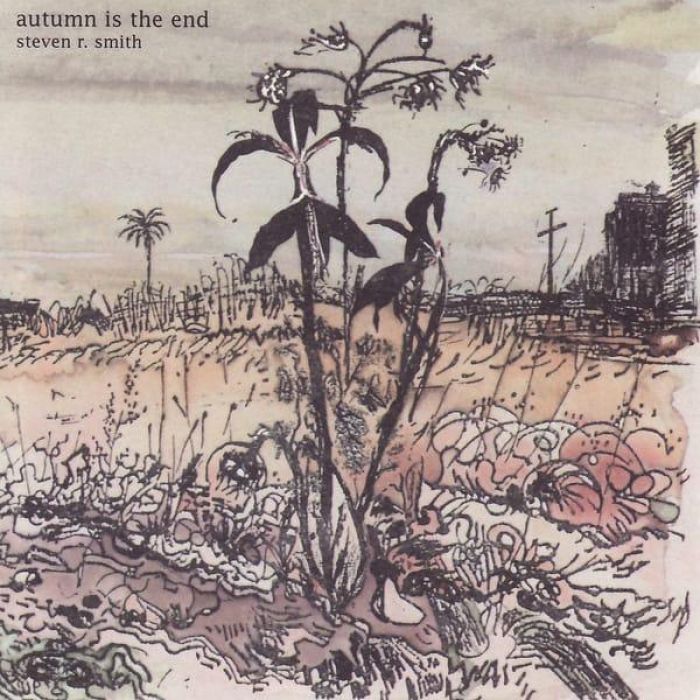Autumn Is the End by Steven R. Smith (Review)

Creating an atmosphere without being atmospheric or succumbing to ambient clichés, Autumn Is the End winds this way and that, from beautiful to menacing, subtle to overpowering. Tracks like “To This Nothing Already Then” are studies in tension, as feedback and drones struggle below the surface, twisting and turning violently, struggling to break free — only to be pummeled back down by the tumultuous percussion and throbbing bassline. It eventually reaches a climax, without any real resolution.
“In Held Ambit” is one of the softer pieces on the album. However, it still contains a haunting menace to it, through the muted use of vocal cries, piano, and scraped violin. It’s like waking up to a majestic sunrise over the desert basin, as the rays just break over the reddened ground, and just before that first heat wave slams into your hide.
One or two songs a bit too meandering, as in “Ohne…/Long, Long Hence,” which starts off like some weird desert gamelan where the wind just rattles and shuffles the gongs — and then strikes up a dust-ridden symphony. But with 8 tracks spread across almost 60 minutes, the music has more than enough time to develop.
Imagine winding your way through dust-blown towns, sun-ravaged fields where nothing but dried-up cornstalks remain, and dusty gulches that once held water fifty years ago. Each breath jabs your lungs with the hot air, and your wipe your grimy brow as the merciless sun beats down. Your horse is almost dead, ambling this way and that for lack of water. Oh, and did I mention that there’s an angry posse on your back, hunting you down?
Autumn Is the End sounds like the penultimate spaghetti western soundtrack, but without all of the lonesome whistles and slide guitars one associates with such a soundtrack. It is a harrowing album, one that’s hard to sit through. Not because it’s unlistenable — at times, it’s quite lovely, like the desert in all of its blasted glory.
Making it through this album is like making it through Low’s Songs for a Dead Pilot. The landscape is equally bare and foreboding, and the beauty, when you find it, is still as haunting and empty as ever. It’s amazing how massive a sound artists like Smith can create and still leave the listener with a sense of nothingness.